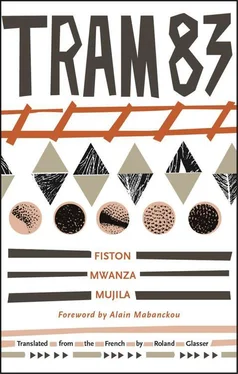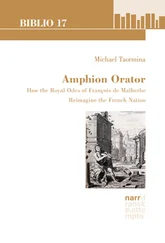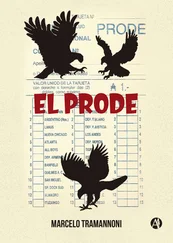They shared the same aspirations: money and sex. They loved money and baby-chicks. They were all drawn to the mines and the Tram. Days, they roamed the mines, whenever they could excavate with the dissident General’s authorization, and nights, they celebrated their good fortune at the Tram. They hit on the baby-chicks and the ageless-women, identified with the jazz, and drank beer till they threw up. Some claimed they required the Zambezi River to get properly drunk. Question: in that case, how many more nights of boozing?
“You’re ruining the clientele. If you carry on latching hold of the tourists like that, I’ll kick you out of the Tram.”
In the Tram’s early days, entry was barred to the baby-chick-girls. And then it was realized they could serve as bait, that they had a right to life and liberty, that they could rack up unhoped-for revenue, that they featured among the selection criteria, that it was their only means of survival, and so a kind of free rein was granted to any woman or girl who could entice an individual and make them spend. They were underestimated by the single-mamas and belittled by the armada of waitresses and other servers. The problem was that they were kind, open to negotiation, sincere, and intelligent for young girls of their age. They refused to wear underwear on the pretext that it restricted the curves of their bodies.
“Foreplay spoils the pleasure.”
The pantyless-girlies were possessed of a stage presence given to fueling rumors that they stuffed themselves with “love drugs” and fetishes of all kinds to enslave their tourist clients and make them their puppies, strategies inherited from their grandmothers and forebears who solicited at Tram 83 in the past, back when the joint was called Savorgnan de Brazza then San Salvador then Pool Malebo then Santa Rosa then Zanzibar … Certain tourists, we learned, became quite fired-up as they grew infatuated with the girls, spending some three hours of their nights and days enumerating, singing, screaming, yelling, reciting, and chanting the surnames of these unassuming pantyless-girlies, sometimes even complete genealogies. And thus you could hear, not far from the station whose metal structure … and in the vicinity of the burnt-ass mines, baying as long as a hangman’s rope: Marie Mujinga Mbombo, daughter of Marcel Kalambay Mutombo and Jacqueline Ntuma, paternal granddaughter of Jean-Pierre Tshimbalanga and Thérèse Kalenga, maternal granddaughter of Mr. Jean-Philippe de Sauvageon and Marie-Louise Kahenga, or perhaps Nelly Lomgombo, niece of Mr. Rolando Petuveria, offspring of a certain Mbuanga who worked as an odd-job man at the port of Beach Ngobila. The same legend specified that other tourists made over their wills to them, between two rounds of frisky frolics dispensed by our little-pantyless-single-mama-pre-baby-chick-sisters, giving up their stones or their apartments or their big cars and worse. Yet others, disoriented by that mysterious pleasure of intertwined bodies, forgot their Flemish, their French, their Portuguese, their Mandarin, their Czech, their Italian, and their Russian in favor of Lingala and Wolof; and so, according to the moralizing rumors, these damned upstarts, these social climbers, disturbed us in the chronology of our pleasure, interfered with our affairs, and lingered in bed with our sisters for a long while, when at the very same moment their brothers continued to speak their Flemish and their Russian, distorted our ancestors in favor of the Merovingians, knocked up hand over fist, escorted gold bars, Northern Station, platform 17, initialed worthless petroleum contracts, cloned a few nascent rebellions against a backdrop of mangled gospels, third-rate glossaries, phraseologies of an inveterate drunkard, a miner by trade or endlessly striking student or carjacker or pizza delivery guy of dubious and other origins. But the fact remains that the appearance of said rumors coincided with the sleeping sickness: imagine the Tram fast asleep, waitresses dozing between two shifts, diggers dozing, students of the endless strike dozing, tourists dozing, jazz musicians dozing, baby-chicks dozing, desperados dozing, and even outside, dozing Syrians, dozing Poles, dozing Frenchies, doz —
“Do you have the time?”
These girls knew how to leapfrog certain stages of their lives, or rather they consumed their adolescence to the full. Their bodies, the kind of heavy artillery that gets you drooling. Requiem liked to go on about how they were the future of humanity.
“Do you have the time?”
RULE NUMBER 46: fuck by day, fuck by night, fuck and fuck some more for you know not what tomorrow brings. Lucien groped his way forward. Awful dark. But the few votive candles stuck here and there and the pounding band kept the temperature hot. Mr. Malingeau was sat close to the podium facing the musicians who were covering an Afro-American song of the 1950s. Lucien quietly joined him at the table. The publisher was so mad for sax that he didn’t see him at all. His great passions were soul music, publishing, carnival, and merchandise. Lucien waited over an hour before addressing him.
“Good evening, Mr. Malingeau!”
“How long have you been here?”
“I don’t know. I was absorbed by the beat, too.”
He stammered. Truth be told, he was somewhere else. With the publisher lost in his own contemplations, he’d been wondering if it was credible to enlist the character of Lumumba alongside Napoleon and Christopher Columbus. He felt guilty at fiddling with history. Is there a limit to the imagination of a writer who takes real facts and uses them to construct a world where truth and fiction coexist? What right does one have to play around with collective memory? Is there any credibility in getting these sometimes-disparate characters in tune? The starting point for all these characters was the thirst in them. But the ending didn’t seem easy to stomach. Not by him but by the audience, who would already balk at his Che who only had five lines (“yes,” “no,” “revolution,” “duty,” “struggle”), or the garrulous silence of a Mussolini Benito before the almost passionate eloquence of President Nicolae Ceauşescu.
“I’m sorry, but music, you know, it’s another part of me.”
“Me too.”
A choir, a salsa variant with an aftertaste of funk for aural pleasures.
“What would you like?”
“Do you have the time?”
“Vodka.”
He hailed a waitress, who strutted over all insolent.
“I really must apologize for the sad events of the other day. I thought it would be quite easy to breathe a certain view of the world into this city through literature. What a waste for intelligent folk like us!”
A soprano took the stage to a round of applause. The Railroad Diva, she was known as. Her fair complexion suggested distant horizons, Thailand perhaps, Nepal perhaps, Afghanistan perhaps, Oceania perhaps, who knows. She too had come to seek her fortune no doubt (but from that to singing?). She performed all her compositions to a track of recorded noises of steam engines leaving the Northern Station. Her sublime voice sliced through the atmosphere, dissipated then reappeared amid the horns, whistles, grating, screeching, shouts of passengers …
“We mustn’t give up,” the publisher continued.
She’d had a smash hit with “My Trains and Me,” a song that stayed in the charts for nearly six years.
“What do you want?”
She didn’t go to sleep hungry, what with all the records she pumped onto the market. That’s a chick to marry, advised the Negus. RULE NUMBER 33: if you don’t manage to get yourself out of this hole, marry a girl to get you out, but not just any girl! She’s gotta sweat gold and cash; and that kind of girl is a critically endangered species.
“Publish your stage-tale.”
Читать дальше












